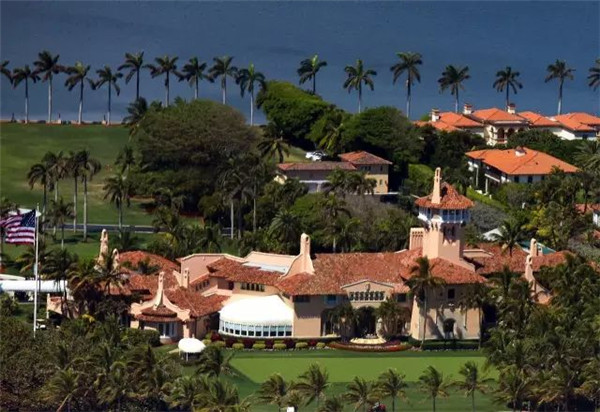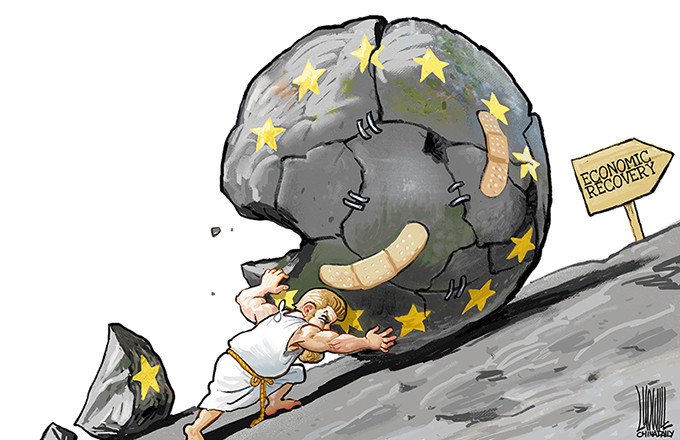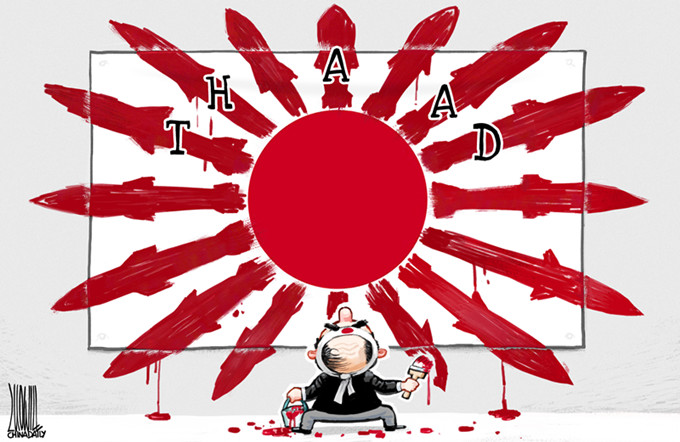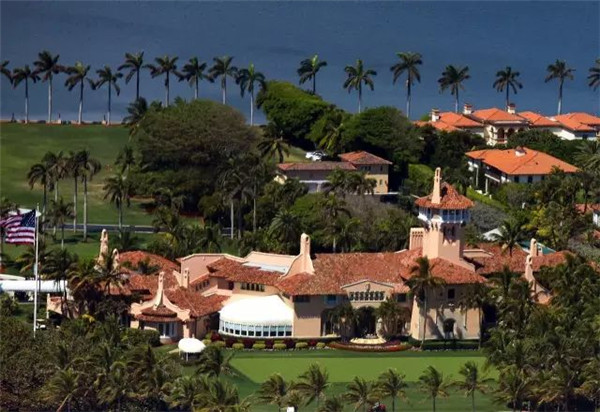Xi-Trump meeting: Practical step for Sino-US synergies
 |
|
A bird's-eye view of the Mar-a-Lago resort in Palm Beach, Florida, where President Xi Jinping will meet his US counterpart Donald Trump on Thursday and Friday.[Photo/Xinhua] |
While objective dynamics are the most visible aspect of global affairs, one should not underestimate the importance of the subjective dimensions shaping the course of history. Among these qualitative elements closer to the minds than to the eyes, the personal understanding built through face-to-face encounters has always played a key role.
From that perspective, the direct interaction between the Chinese President Xi Jinping and the new resident of the White House Donald Trump, the world's two most powerful political leaders, is of the highest significance.
The contrast between the two characters but also between the two biographies which partly formed them is striking, and they publicly argue for different if not opposing approaches to international politics and economy. On one side, new forms of unilateralism and the temptation of protectionism embodied in the "America First" motto, on the other side, the commitment to global governance, multilateralism and free trade as pillars of what the Chinese President calls a "community of shared destiny for mankind".
However, the very fact that the Xi-Trump meeting is taking place in the first 100 days of the new American administration indicates that both sides have realized that coordination and cooperation between the two are indispensable. Trump's "America First" and Xi's overall objective, the peaceful renaissance of the Chinese civilization, are, in reality, mutually interdependent.
No one, even their closest advisors or confidants, can precisely anticipate how these two psychologies without apparent affinities will relate to each other, but they are at least creating the conditions to be connected by a certain level of personal trust.
Operating in the 21st century globalized world system, the distance between Xi Jinping and Donald Trump is, in any case, much less than the one which separated Mao Zedong and Richard Nixon who nevertheless managed to reduce 45 years ago a considerable strategic mistrust.
Beijing and Washington are well aware that Sino-American synergies are needed to stabilize the situation of the Korean peninsula, to guarantee security when terrorism threatens it in a large Afro-Eurasian space, and beyond, to make sure that any dispute or conflict happening in any corner of the world does not escalate in a way which would significantly affect global economy and peace.
When Donald Trump was mentioning tariffs on Chinese goods, talking about currency manipulation or about the "one-China principle" as being negotiable, he was acting as a dealmaker trying to get some leverage – key notion of his "Art of the Deal"– in a much larger negotiation with China.
In exchange for a relatively accommodating 45th President of the US, Beijing would have to provide more market access to American exports (the US trade deficit with China was of $347 billion in 2016) but also to commit to jobs' creation in America through a flow of investments in industry or in infrastructure.
The Xi-Trump meeting equals, indeed, to a first deal between the two countries which could be followed by a series of agreements in which the pragmatism of a New York's real estate businessman, what Donald Trump in essence is, has found an echo in the adaptability of the Chinese mind.
While the ideal of a harmonious Sino-American partnership was still in the horizon at the 2013 Sunnylands' retreat of Xi Jinping and Barack Obama, the 2017 Xi-Trump encounter is clearly less about dreams than about deals.
Given the complexities of the Sino-US relations one should not expect them to enter, in the foreseeable future, into a strategic and stable alliance but both sides will know how to find convergence on the most important economic and political issues and they will be rational enough to avoid extreme divergence in case of tensions and crises.
Being directly or indirectly impacted by the evolution of the Sino-American relations the entire world is observing the interactions between Xi and Trump, but, in the present situation, it is the European Union which should be the most attentive.
The narrative of a "New Yalta" in which the US, China and Russia would design a new world order might remain pure theoretical speculation but should the post Brexit EU continues on a path of largely self-imposed weakening, Washington, Beijing and Moscow could be enticed to make de facto agreements which will not necessarily be in the EU's interests.
By comparison with Trump's America and Putin's Russia, Beijing appears as a strong external support of the European integration but one can't expect China to be more European than the Europeans themselves.
However, the progress of the European Union matters beyond Europe's borders since the integration of ancient European nations proves that with time and wise leadership, the US and China could also go much beyond tactical agreements, they could co-design institutions organizing their concrete shared destiny.
The foreign policy of a dealmaker can certainly limit itself to a series of bargains or tactical arrangements but it can't have the powerful effect of a diplomacy taking root in a universal vision.
Xi Jinping's call for a "community of shared destiny for mankind" does not give him mere leverage for a temporary transaction but the altitude to develop a long term strategy, China’s peaceful return to centrality in a globalized and multipolar world.
David Gosset, founder of the Europe-China Forum and of the New Silk Road Initiative, director of the Academia Sinica Europaea, CEIBS.



















